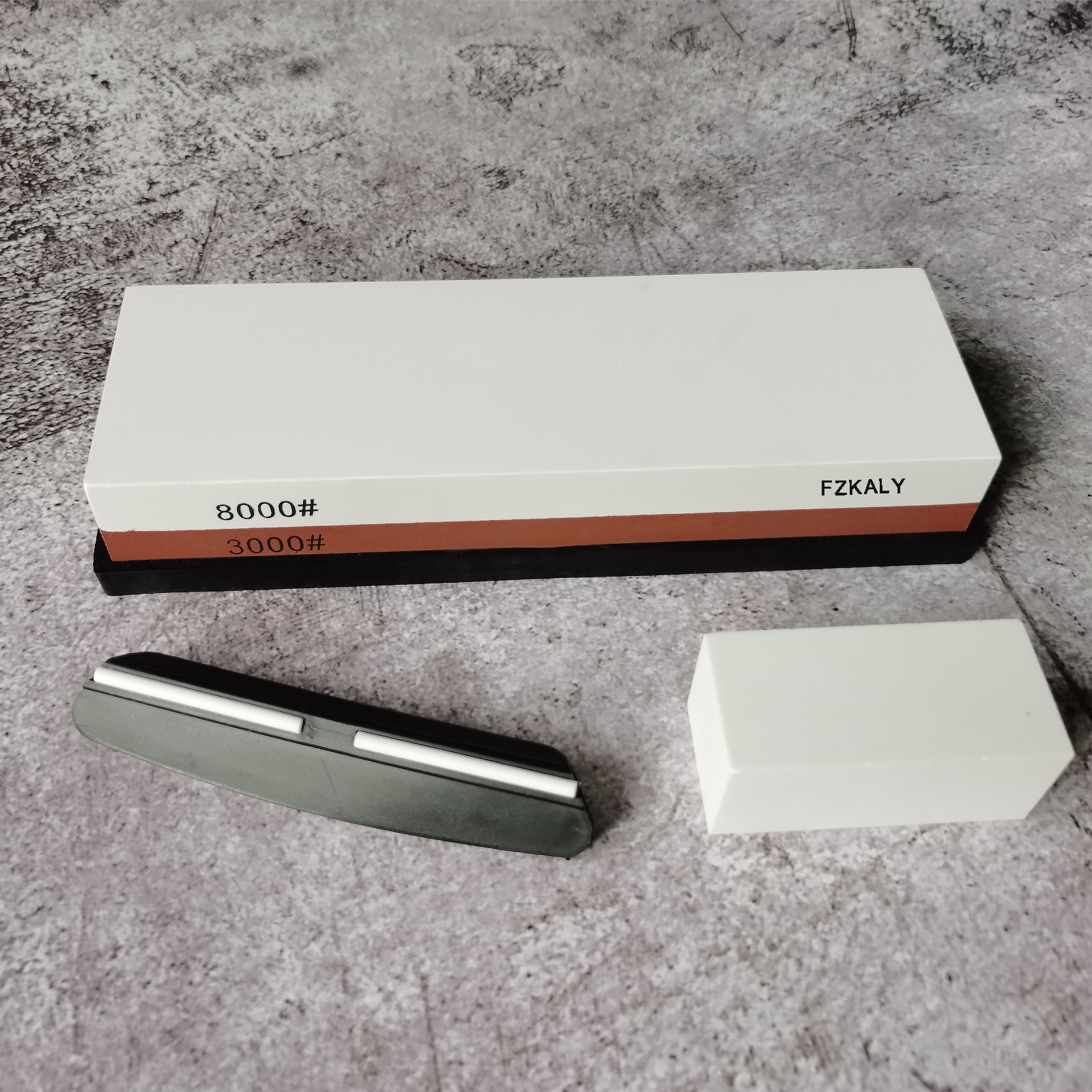Knives and Stones: A Guide to Picking the Right Knife Sharpener
Feb 10,2023 | Fzkaly
Sharp knives are essential in the kitchen, workshop, and garden, but keeping them in top condition requires regular maintenance and sharpening. One of the most popular methods of sharpening knives is using a sharpening stone, also known as a whetstone. In this article, we will explore the different types of sharpening stones, and offer some tips to help you choose the right one for your needs.

Types of Sharpening Stones
Sharpening stones come in a range of materials, grits, and sizes, each with its own unique properties and benefits. The most common types of sharpening stones are:
1. Natural Stones
Natural stones are made from quarried materials, such as whetstone or Novaculite, and are prized for their ability to produce a razor-sharp edge. They are also more expensive than synthetic stones and can be more delicate and require more care to use.
2. Synthetic Stones
Synthetic stones are made from a combination of materials, including aluminum oxide, silicon carbide, and ceramics, and are often more affordable than natural stones. They are also more durable and require less maintenance.
3. Combination Stones
Combination stones offer the best of both worlds, with a coarser grit on one side for removing nicks and dull edges, and a finer grit on the other for honing and refining the edge.
Grits of Sharpening Stones
The grit of a sharpening stone refers to its abrasiveness, with lower grit numbers indicating a coarser grit, and higher grit numbers indicating a finer grit. When choosing a sharpening stone, it is important to consider the grit of the stone, as well as the type of knives you will be sharpening.
For removing nicks, and dull edges, and restoring a damaged blade, a coarse grit is best, such as a 100-200 grit stone. For honing and refining the edge, a finer grit, such as 600-1000 grit, is recommended. For maintaining a razor-sharp edge, a very fine grit, such as 2000-8000 grit, can be used.
Size of Sharpening Stones
Sharpening stones come in a range of sizes, from small pocket-sized stones to large bench stones. The size of the stone you choose will depend on your personal preferences and the type of knives you will be sharpening.
If you are looking for a sharpening stone to take with you on the go, a small pocket-sized stone is a good choice. If you have a large collection of knives and want a stone that can handle all of them, a large bench stone may be the best option.
Choosing the Right Sharpening Stone for Your Needs
When choosing a sharpening stone, there are a few factors to consider, including:
The type of knives you will be sharpening: Different knives require different grits, and some knives may benefit from a combination stone.
Your level of experience: If you are a beginner, a combination stone is a good option, as it offers both coarse and fine grits. If you are experienced, you may want to consider a natural or synthetic stone with fine grit for honing and refining the edge.
Your budget: Natural stones tend to be more expensive than synthetic stones, but they offer superior performance and durability.
Where to find the right whetstones?
Attention all kitchen enthusiasts! Keep your kitchen knives sharp and ready for action with Fzkaly Whetstones. Designed specifically for kitchen knife sharpening, our stones are made from premium materials to deliver a razor-sharp edge every time. Whether you're a professional chef or just love to cook at home, our whetstones are the perfect solution for maintaining the sharpness of all your kitchen knives. With a range of grits and sizes to choose from, you'll find the perfect stone to fit your needs. Upgrade your knife sharpening game today with Fzkaly Whetstones.
In conclusion, the right sharpening stone for you will depend on your needs and preferences. By considering the type of knives you will be sharpening, your level of experience, and your budget, you can choose the right stone to help you keep the sharpness.




